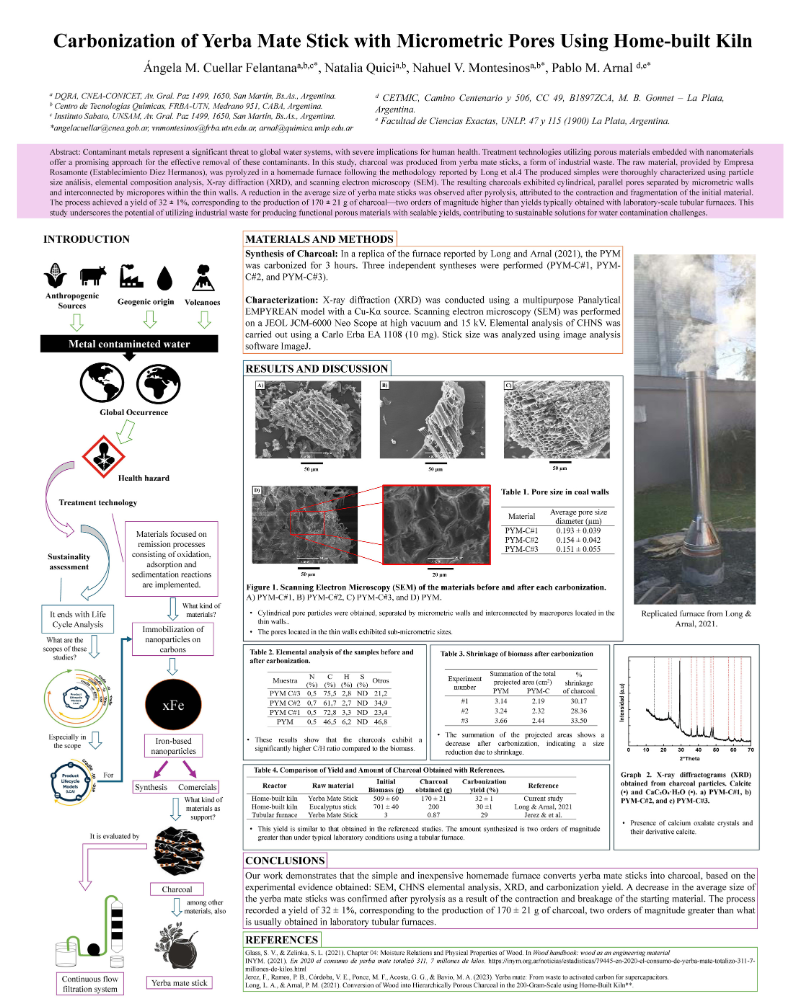
Contaminant metals represent a significant threat to global water systems, with severe implications for human health. Treatment technologies utilizing porous materials embedded with nanomaterials offer a promising approach for the effective removal of these contaminants. In this study, charcoal was produced from yerba mate sticks, a form of industrial waste. The raw material, provided by Empresa Rosamonte (Establecimiento Diez Hermanos), was pyrolyzed in a homemade furnace following the methodology reported by Long et al.4 The produced simples were thoroughly characterized using particle size análisis, elemental composition analysis, X-ray diffraction (XRD), and scanning electron microscopy (SEM). The resulting charcoals exhibited cylindrical, parallel pores separated by micrometric walls and interconnected by micropores within the thin walls. A reduction in the average size of yerba mate sticks was observed after pyrolysis, attributed to the contraction and fragmentation of the initial material. The process achieved a yield of 32 ± 1%, corresponding to the production of 170 ± 21 g of charcoal—two orders of magnitude higher than yields typically obtained with laboratory-scale tubular furnaces. This study underscores the potential of utilizing industrial waste for producing functional porous materials with scalable yields, contributing to sustainable solutions for water contamination challenges.